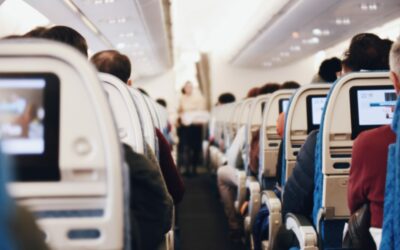Here are 16 tips to help solo travelers stay safe while traveling anywhere in the world.
 Traveling alone can mean freedom for some, as they have the opportunity to do exactly what they want without compromising their journey to please or satisfy a companion. They can go to those places that they want to see and participate in activities they want to do. They follow these rules to stay safe while traveling without hearing or feeling the judgment of others.
Traveling alone can mean freedom for some, as they have the opportunity to do exactly what they want without compromising their journey to please or satisfy a companion. They can go to those places that they want to see and participate in activities they want to do. They follow these rules to stay safe while traveling without hearing or feeling the judgment of others.
Solo travel is not without problems, however. Loneliness is one for many. Single supplement fees hit solo travelers hard, particularly on tours and cruise lines. Safety and security are also major potential problems for solo travelers.
To me, as I’ve gotten older, safety is my primary concern when traveling alone. Solo travelers with whom I’ve spoken over the years, particularly senior citizens, have told me it’s their primary concern, too.
Research is important for every traveler’s safety and security no matter where you’re traveling.
Research your destination(s):
Before you start booking your trip, research the safety of its destinations. Find out about crime and learn about the locations of the more dangerous areas, if any, to avoid. Look for local problems specific to your destination and the safety of public transportation, etc. Learn what the locals wear so you know what clothes you need to blend in with them. If you’re traveling internationally, the U.S. Department of State’s country-specific information is a good place to start your research.
Copy your itinerary to friends and family:
Always leave a copy of your itinerary with friends and family at home. During your journey, check in with them regularly. While you can do it mostly by text or email, at least once every few days, call them so they know it’s really you saying you’re okay, not someone else in control of your smartphone.
Know how much it costs to get from the airport to your hotel:
Solo tourists are too often victims of taxis who have “broken meters” and overcharge them. Find out in advance how much it costs to get to your hotel from the airport to prevent being “taken for a ride.”
Only book hotels with quality security features. For extra safety, bring your own alarm doorstop, and never publicly state your hotel room number.
Book a hotel with good security features:
If you’ll be arriving at your hotel late, book a hotel with a 24–hour front desk. More importantly, book a hotel with a 24–hour front desk so that if something happens, you’ll have someone to call for quick action. If possible, stay at hotels that require guests to swipe their room key to activate the hotel elevators.
Bring an alarm doorstop for your hotel room:
Too many hotel room doors lack working safety latches or security chains. Especially if traveling alone, pack an alarm doorstop. They’re a little bulky and add weight to your bag, but they’re great at preventing unwanted entry into your room and they’ll make a lot of noise in case an intruder tries to force their way in.
Don’t say your hotel room number at the front desk or anywhere:
Don’t let anyone know what room you’re staying in by saying the number out loud. Even if you’re not traveling alone, this is a good security practice.
Know the emergency telephone number at your destination(s):
While dialing 911 in case of emergency will work in the U.S., it won’t work elsewhere. Be sure you know the emergency phone numbers at each of your destinations.
If you can’t afford to lose it, leave it at home:
This is my advice for every traveler, whether solo or not. If something is so valuable that you can’t afford to lose it, due to cost or sentiment, leave it at home. Particularly if you’re traveling alone, don’t show off wealth. Leave the expensive jewelry at home. Don’t be flashy. Leave obviously expensive clothing at home.
Having situational awareness and always using your street-smarts. It is crucial to your safety.
Situational awareness is invaluable:
When out and about while traveling, always be aware of your surroundings. If something doesn’t feel right about where you are or what’s happening or if you have a concern, trust your senses and your judgment, then make a new choice of where to go and what to do.
Carry good identification in more than one place:
Don’t carry all your identification together. Keep it separate so that if pick pocketed or lost, you don’t lose it all.
Carry extra credit and debit cards, IDs and cash securely:
While at your destination, only take an ID, credit card and cash that you’ll need for the day. Leave your extra credit and debit cards, IDs and extra cash in your hotel room safe. While in transit, carry what you’ll need for the day as you normally would (none in your back pockets) and the rest in a secure location on your body, such as in a money belt or chest pouch. Don’t give away where you’re keeping the extras by touching yourself to make sure it’s still there. That’s a give-away to thieves about what you’re carrying and where.
When traveling alone, lie about it to strangers rather than letting them know you’re solo.
Lie about being alone to keep safe while traveling:
Don’t let strangers know that you’re traveling alone. For example, if you need directions to a restaurant or museum, tell whoever you’re speaking with that you’re meeting a friend there.
Avoid appearing like a tourist:
Stay safe while traveling by blending in with locals as much as possible. Don’t look like a solo tourist. Skip the baseball caps with logos and the home team or tourist T-shirts. Don’t keep pulling out a tour book. In fact, if you need to periodically check tour books when out, use an electronic one on your smartphone.
Stay safe while traveling by ensuring that your smartphone is ready for emergencies. Keep it well-charged at all times. Don’t bury your head in its screen when out and about.
Don’t walk around with your head down staring at your smarphone screen:
Being in a strange city it’s natural that you’re not going to know your way around. Burying your head in your smartphone screen to follow directions to your local destination is a problem on two levels. First, you stand out as a tourist, but far more important, second, you can’t be situationally aware unless you’re looking around. Before you start walking anywhere, familiarize yourself with the route to get there and if you don’t have them, invest in a good pair of earbuds and listen to the directions from your smartphone.
Don’t let your cellphone battery get too low:
In an emergency, you want to ensure that your cellphone will have plenty of power to get help day or night. You can’t do that if you’re far away from “civilization” on a long hike or camping without a cellphone. If camping or hiking, where cellular service is dead, use a smartphone that has satellite phone capability for texting so you can always get help.
Be very careful where and what you drink when alcohol is part of it.
Watch what you drink and where you drink:
You’re a prime target of drink-drugging criminals when you’re traveling solo. Too many solo travelers get drugged, then robbed and too often assaulted due to alcohol. Be careful about where, what and how much alcoholic beverages you drink.
While using these solo travel safety tips won’t guarantee your safety, they’ll go a long way to helping you stay safe if you use them.
READ ALSO:
How airline alliance improvements are making international travel worse
Hotel room-rate lies — hiding mandatory hotel fees harms travelers
After many years working in corporate America as a chemical engineer, executive and eventually CFO of a multinational manufacturer, Ned founded a tech consulting company and later restarted NSL Photography, his photography business. Before entering the corporate world, Ned worked as a Public Health Engineer for the Philadelphia Department of Public Health. As a well known corporate, travel and wildlife photographer, Ned travels the world writing about travel and photography, as well as running photography workshops, seminars and photowalks. Visit Ned’s Photography Blog and Galleries.



